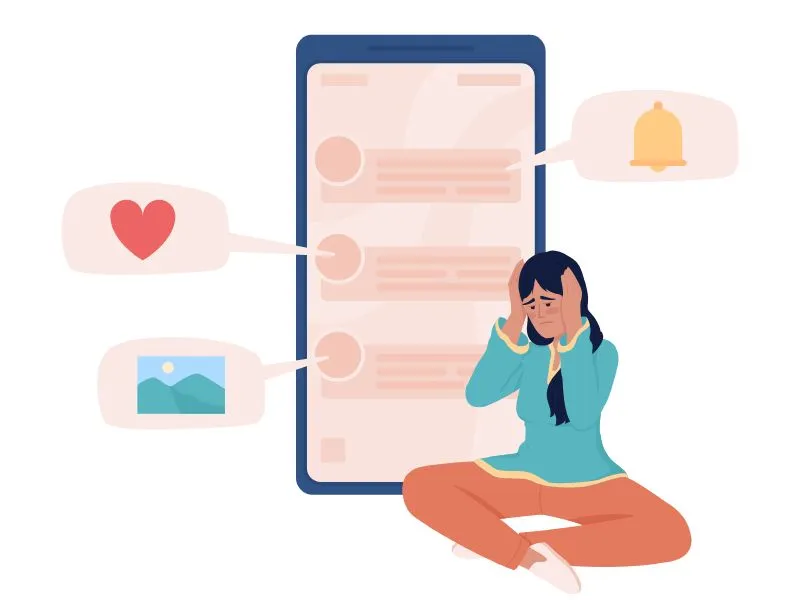Social media is gradually becoming an integral part of our lives, offering a new mirror through which we can explore the world around us. It provides information, keeps us connected, and has become essential for career growth. However, as much as we value its benefits, we must also acknowledge the profound effects it can have on our mental health, particularly among young adults.
Critical issues associated with social media use:
Fear of Missing Out (FOMO): One of the most prevalent issues related to social media is the Fear of Missing Out (FOMO). We often find ourselves anxious about not being a part of enjoyable experiences or important events showcased on social media. Seeing our friends' posts about parties, vacations, or gatherings can lead to feelings of inadequacy, loneliness, and fear of not measuring up to societal expectations. It's important to remember that social media represents curated highlights and not the complete reality of people's lives.
Comparison and Envy: Social media platforms often present an idealized version of people's lives, emphasizing their achievements, travel adventures, relationships, and material possessions. Constant exposure to these seemingly perfect lives can foster comparison and breed envy. As we compare ourselves to others, we may start feeling dissatisfied with our own lives, questioning our accomplishments, appearance, and overall worth. It's crucial to remember that each person's journey is unique, and what we see on social media is just a fraction of the full picture.
Negative Self-Image and Body Image Issues: The prevalence of carefully edited and filtered images on social media can significantly impact our self-perception. Unrealistic beauty standards portrayed online can lead to negative self-image and body image issues. Constant exposure to flawless physiques and flawless lives can make us feel inadequate and dissatisfied with our own appearance. This can contribute to lower self-esteem and even trigger the development of eating disorders or other body-related concerns.
Cyberbullying and Online Harassment: While social media offers a platform for connection and interaction, it can also serve as a platform for cyberbullying and online harassment. The anonymity provided by the digital realm emboldens some individuals to engage in hurtful behavior. Mean comments, insults, or threats can have a severe impact on mental well-being, causing emotional distress, anxiety, and depression. It is crucial to report and block any instances of cyberbullying and reach out to supportive individuals or resources for help. In Conclusion if the issues associated with social media use are left unaddressed, they can have severe consequences on mental health, including anxiety, depression, and other related conditions. It is crucial to prioritize mental well-being and establish healthy boundaries with social media to overcome these challenges.
Conclusion
Solh Wellness offers a genuine and supportive platform where teens can freely express their true experiences and engage in meaningful conversations. By utilizing tools like journaling and support groups to share their authentic selves, we can foster a balanced approach to using social media and protect our mental well-being in the digital era. Solh Wellness provides a safe space for teens to be real and find support, enabling them to navigate social media while prioritizing their mental health.



